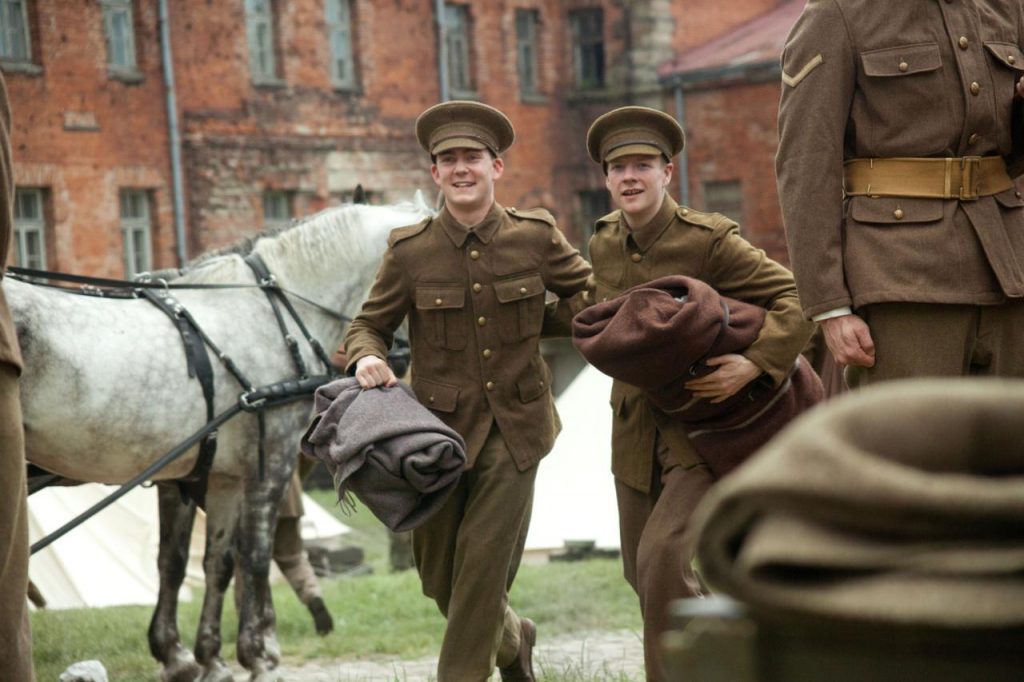
In the Western imagination, World War I seems to have been neglected in favor of its far more destructive sequel, even though it is just as important to the history of the 20th Century. With that in mind, I devoted a little bit of time to a search for some stories based on the Great War and came across The Passing Bells. The 2014 BBC production devotes approximately two and a half hours to one of the darkest chapters of the 20th Century… and shows us just how lazy and creatively bankrupt British television can be.
We Don’t Get To Sit With The Cast.
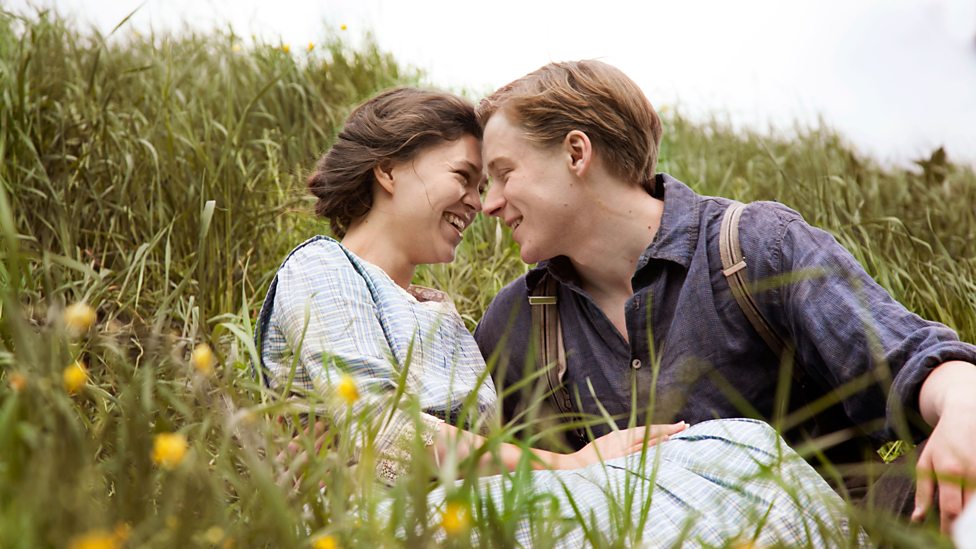
If I had to sum it up, the fundamental problem with this short series is its expansive cast. Each individual episode is 30 minutes long, but it is split between a British teen named Thomas (Patrick Gibson) and a German teen named Michael (Jack Lowden). While the pair are competent in their respective roles, we can’t sit with them long enough to develop a connection. As a point of reference, let’s consider the first episode.
In the history of the Great War, it has often been said that jingoistic optimism gave way to feelings of nihilism over the bloody four year struggle. However, we don’t get to see that over the course of the story due to the offensively slim time constraints. The first episode never gives us insight into how Thomas or Michael joined their respective armies. They just do it, train for a few short minutes, and are immediately sent to the front.
As a consequence, they seem to be more like cardboard cutouts than actual soldiers.
To make matters worse, the creators make no real attempt to differentiate the two via dialogue or mannerisms. The narrative is clearly designed so that the audience sees the similarities in both characters, but it doesn’t capitalize on the symmetry by pointing out the little differences that defined the war. In fact, the lack of a single German accent turns the first half of the opening into a confusing mess.
Where Are We? Who Are You?
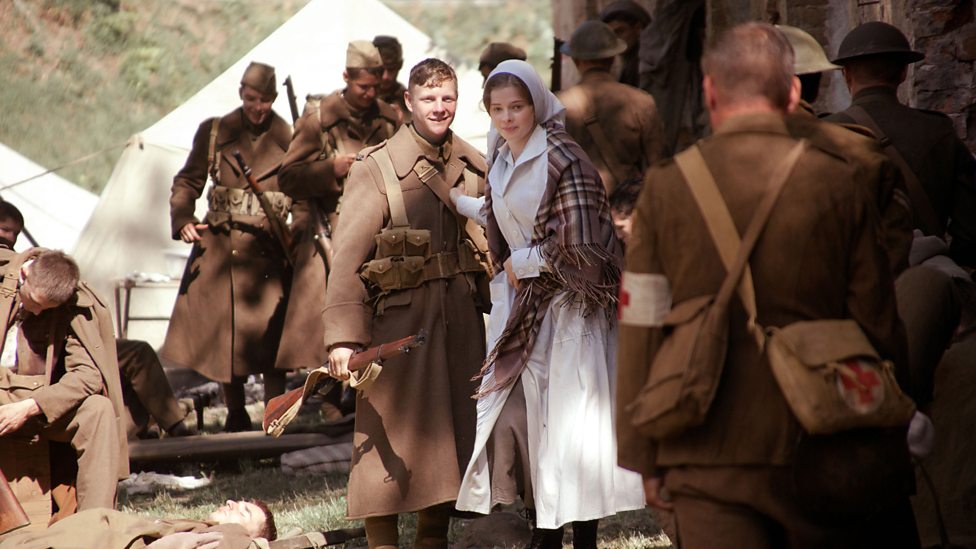
As a consequence of the limited run-time and split focus, we never really get a sense of what is going on in a given episode beyond the cliff notes. Thomas and Michael head to a place, do a thing, meet some people, and move on. Sure, there are references to notable events like the Battle of the Somme, gas attacks, and the American entry into the war, but why should we care?
The story tries to get emotional as it moves between war and romance, but the lazy storytelling makes it hard to empathize with anyone on screen. To get a sense of what I mean, let’s consider the supposed love affair between Thomas and Joanna (Erika Kaar). Most of their relationship moments happen off-screen, which makes it impossible to give a shit about any of it.
Look, I get that our ancestors treated each other to a healthy dose of ass love rather quickly because they thought that they were going to die of the Spanish flu, but can we at least TRY to portray what they went through to give birth to the generation that bitch-slapped the Nazis into the dustbin of history?
Speaking of which…
The Lack of Blood And Guts Is Laughable.
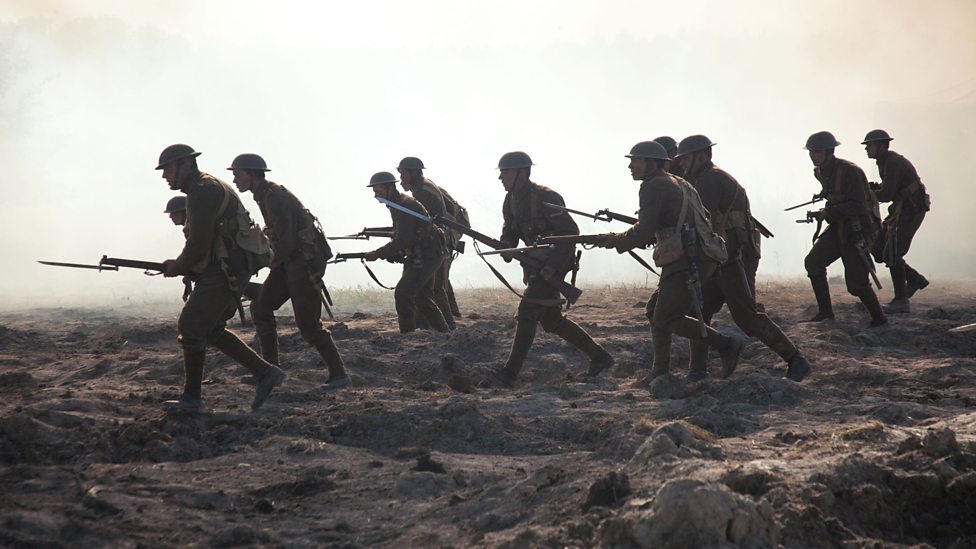
Above all else, The Passing Bells utterly fails to portray the horrifying nature of modern warfare in a meaningful way. In any given battle sequence, the production team sanitizes war to the point where it seems like a PG-rated movie. While one can see that this easily accommodates a pre-watershed time slot, it utterly neglects the reason why people need to see war in all of its brutality.
To give you a sense of what I mean, let’s compare this series to Saving Private Ryan.
When that film opens, the viewers are dropped into the middle of Omaha Beach on D-Day. The film does a fine job of introducing each character and showing off their ingenuity as they move up the beach, but Spielberg’s uncensored look at war does something more. It actually deepens our attachment to the fictitious characters of the story by honoring what the real heroes of that day actually went through.
None of that is apparent in The Passing Bells. We don’t see the blood, young men screaming for their mothers, or the sheer terror as hundreds of men are mowed down by machine gun fire. Therefore, it’s difficult to give half a damn when Thomas and Michael’s comrades talk about how traumatized they are on the battlefield.
War may be necessary, but it is not a fun romp where the dead just look like they’re sleeping. If you’re going to tell an inspired story, it is your duty to show that!
Conclusion.
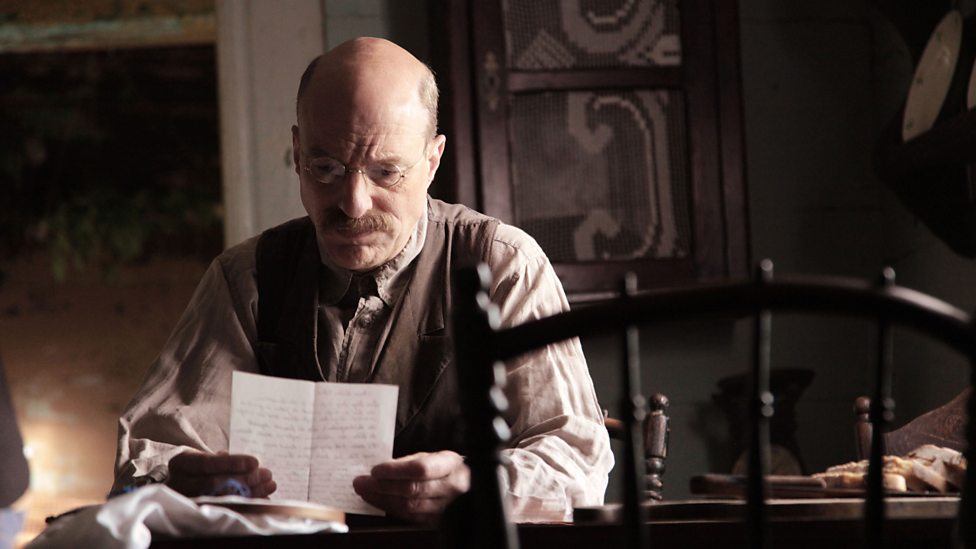
The Passing Bells is not worth your time in the slightest. As a character study, it utterly fails to deliver because of its scattershot structure. One cannot take it as an honest look at World War I either because of its inability to examine the causes and horrors of war.
Other war dramas have tackled personal stories in a far more competent way. Saving Private Ryan, Band of Brothers, and The Pacific all take place in World War II, but they actually compel the audience to think about the trials and tribulations of our brave warriors. There’s oodles of craftsmanship and care in each of those masterpieces, and one can easily see that on the screen.
One day, I hope that World War I gets that same treatment.
No Comments Yet